We set off on a local bus from Potosi. We tourists have seats, but as we head into the wilds of the countryside the bus picks up more and more people and several sit down in the aisle, either on little portable seats or (in the case of local women) on their multicoloured blankets. Real life, and lots of it. Great scenery, and we arrive in windswept and rubbish-strewn Uyuni – anyone fancy helping with a litter pick for the next 15 years or so? We remember the previous few hotels have been cold, but here we are down yet a few more degrees. We find the only restaurant in town with a log fire, eat pizza and later tuck ourselves up in bed supplemented by the sleeping bags we have rented from our tour company.
Next morning we are greeted by 4WD LandCruisers for our tour to the Salt Flats, the world’s largest at over 4000 square miles. A few minutes later we visit the one and only local tourist sight, the Train Cemetery. The train lines were built by British engineers near the end of the 19th century and the trains used mostly by the mining companies, although the trains were later abandoned here when the industry collapsed. Nowadays visitors clamber all over the rusty heaps – not a safety notice in sight!
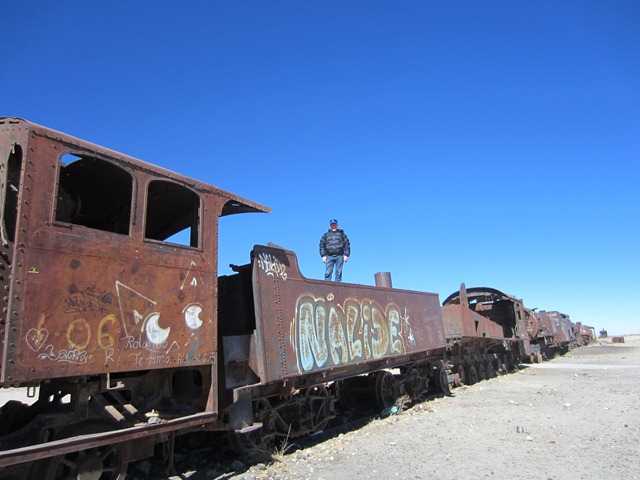
We stop nearby to hear an explanation of how the salt is extracted and processed hand: lots of digging, drying and then finally the backbreaking-looking bagging process – not a job we fancy !
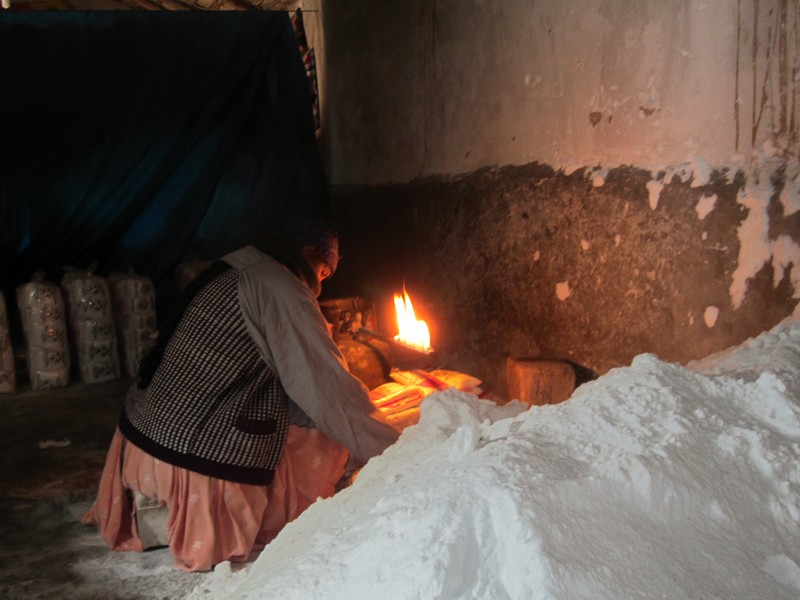
We drive onto the salt flats and see the salt piles which have been manually shovelled and are now ready for collection.
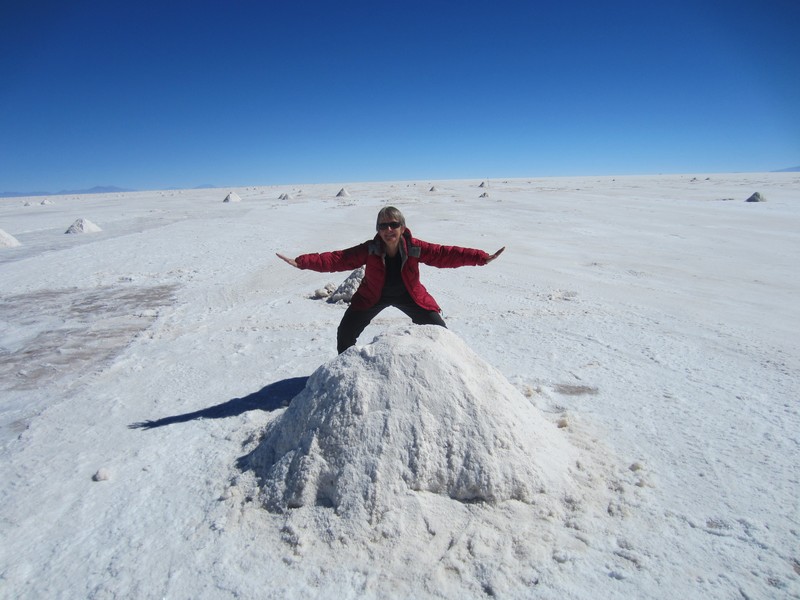
In many places the salt is a metre or more deep, but just occasionally there are large holes where the gas bubbles up, called “the eyes of the salt flats”.
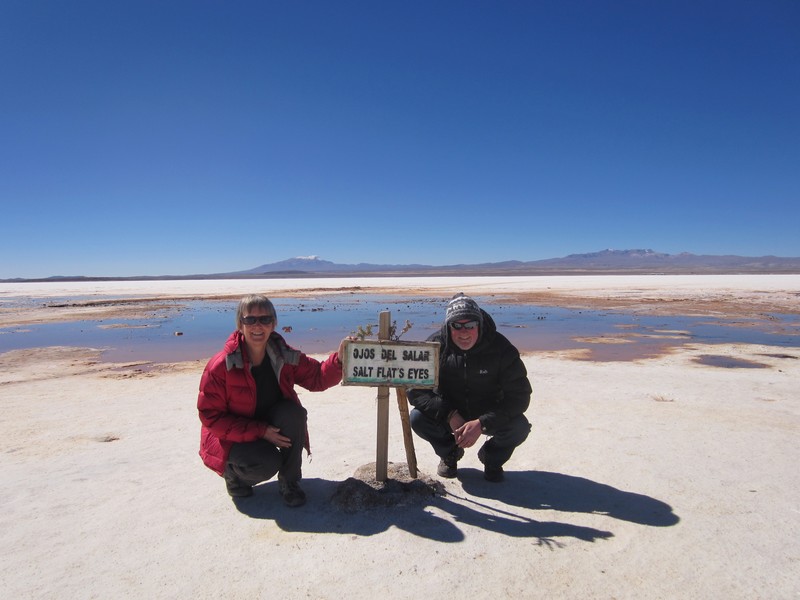
A couple of local residents who can withstand the cold rather more easily than us.
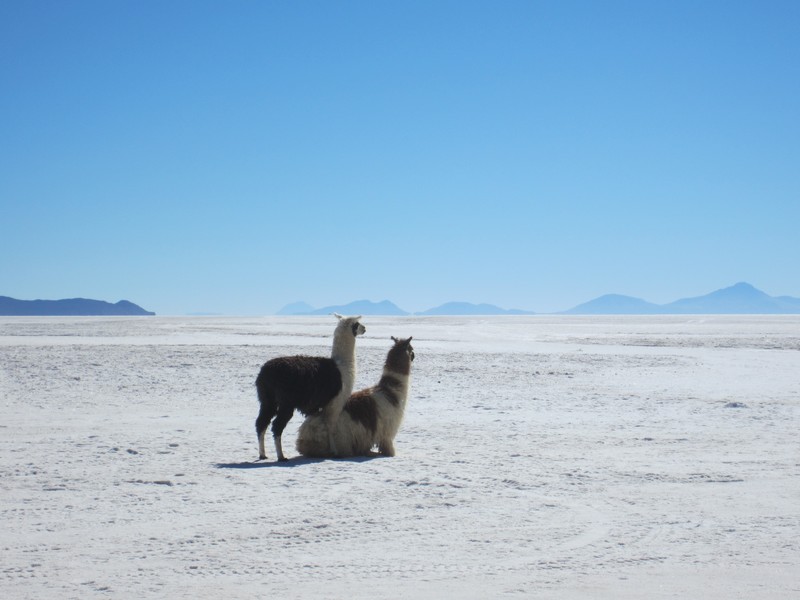
After lunch we spend ages taking silly photographs, which seems to be the thing to do round here.
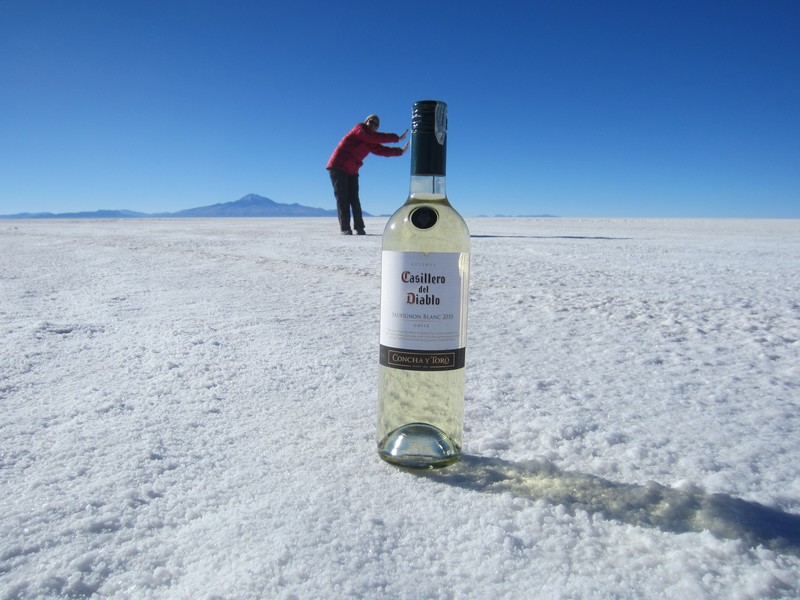
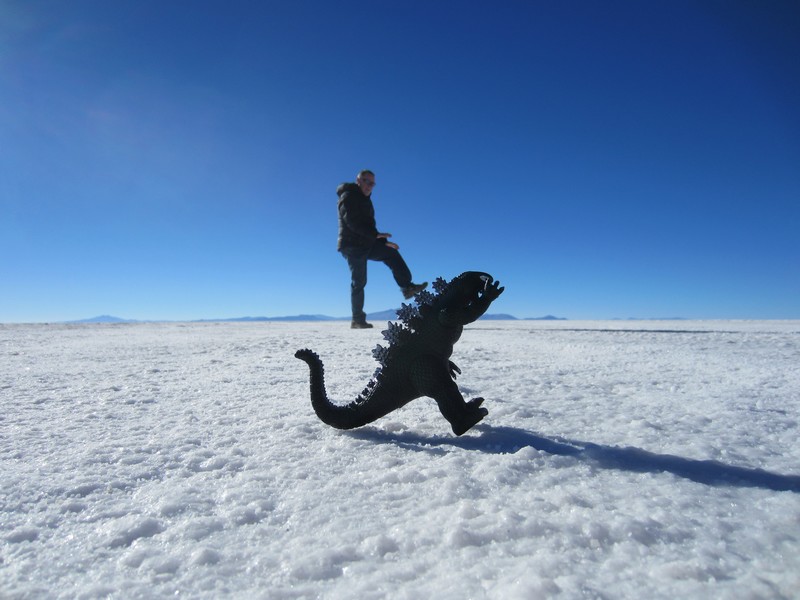
After another cold night in a hostel where the floor, the tables, the chairs and even the bed supports are made of salt (!) we carry on across the salt flats – more stunning scenery. Over the next couple of days, the scenery gets more impressive, and the accommodation gets ever colder. Here’s a selection of views. First off, volcanoes and flamingoes.
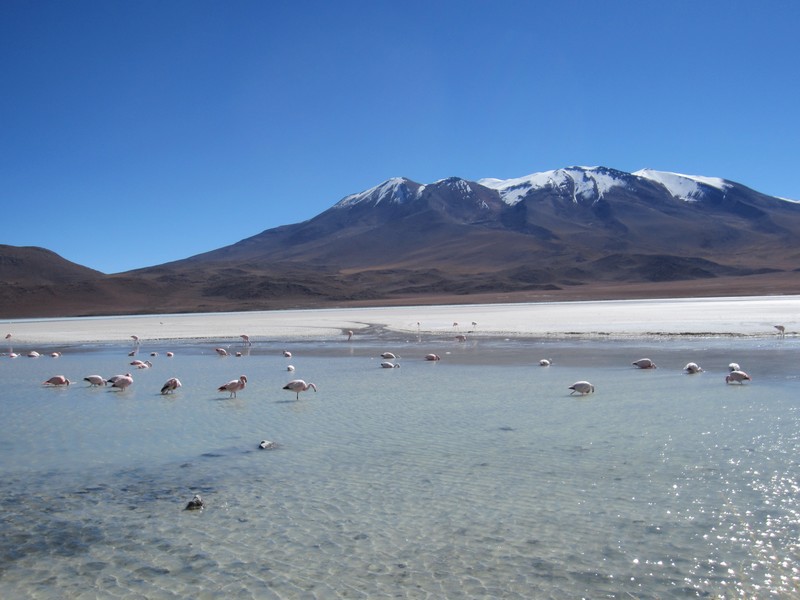
Chile is over there somewhere, I think. The air is so clear you can’t tell how far away things are.
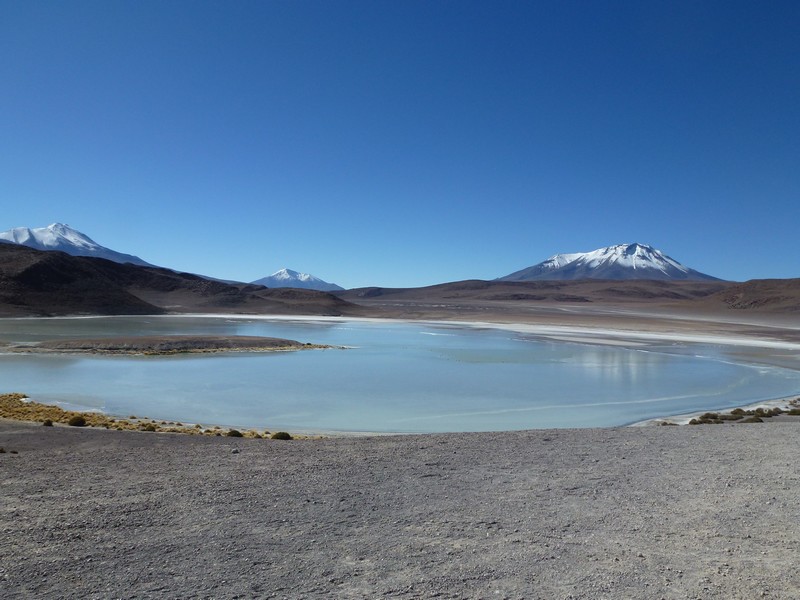
No peeing in the lakes. Even for girls.
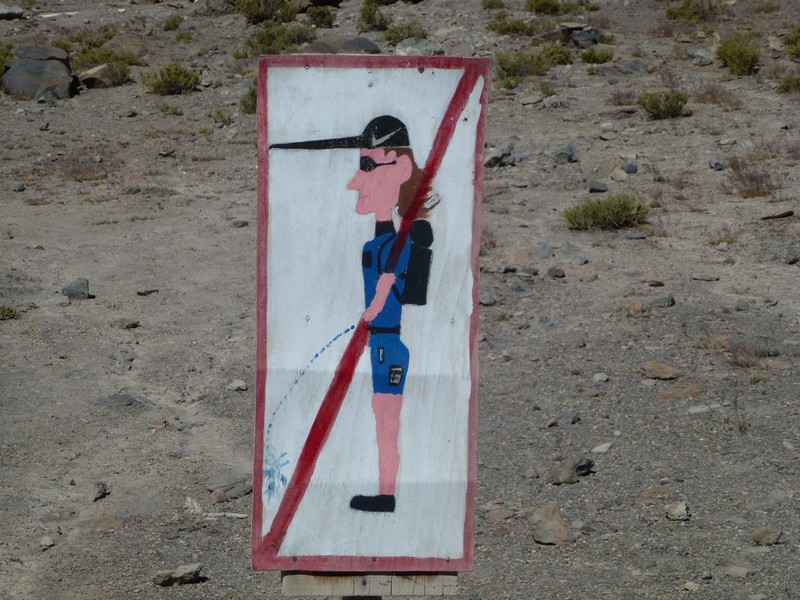
Cold or what ? Laguna Colorado, so called because it is coloured by algae.
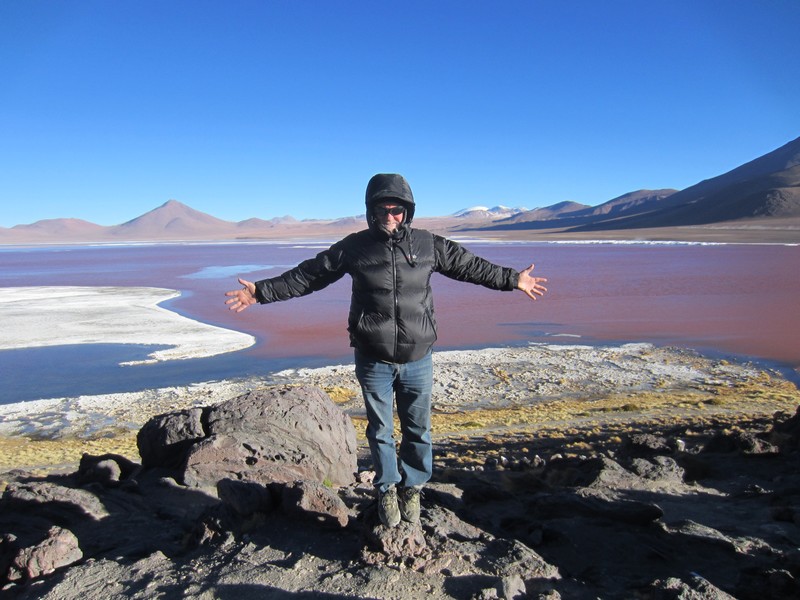
Our last night in the flats is spent in dormitories with no heating, and in fact no lighting for most of the time. According to the park rangers, the temperature had dropped to -24c the night before. It didn’t quite hit that for us, but we get up at 4:00am and it is plenty cold, probably -10c or so. The drivers have to warm the cars up for 30 minutes before we can leave, by which time we are absolutely frozen. No problem, though: we drive to a hot spring in a volcanic crater and all jump in. No, I’m not making this up.
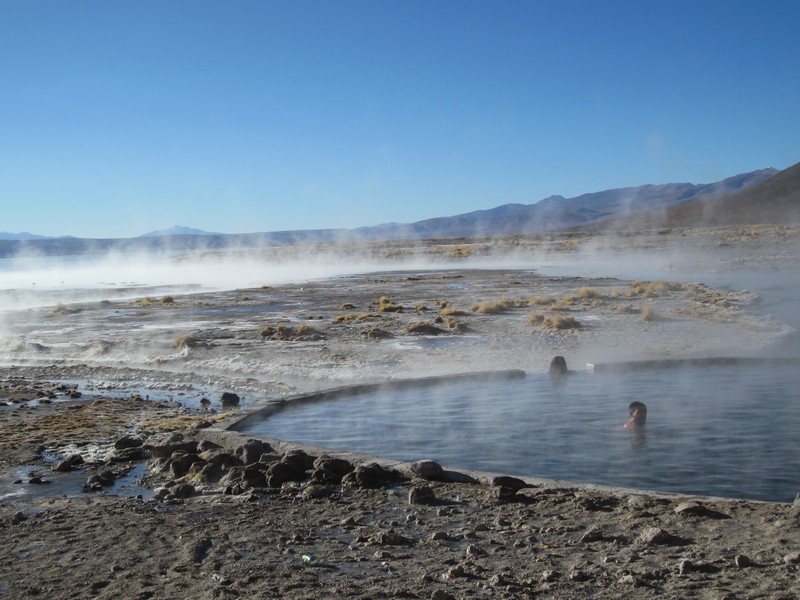
The only problem ? It’s still -10c when we get out onto the cold rock. Makes changing out of your swimmies an interesting, not to say speedy, experience. Then we hit one final sight, a geyser, before heading on to San Pedro de Atacama, in Chile. Diane says, look, it’s a geyser, and I’m frozen stiff.

San Pedro, while still high in the Andes, is comparatively balmy, and permits the wearing of single layers of clothing in the wintery sun. We’re only staying one night, then we’re off to Salta, in Argentina.

amazing – a very unusual place!
I do remember from my one trip to the Galapagos that flamingos have a completely different aesthetic than we do – barren, salty and anything but lush on the ground is fine with them; and of course they don’t care at all about the background.
I love your photos!
the photos of the trains reminds me a bit of the film “Lawrence of Arabia” – one of my favorites
Elisa